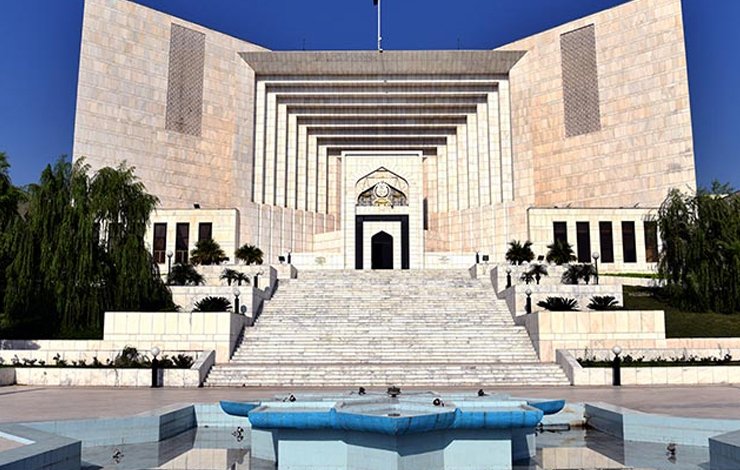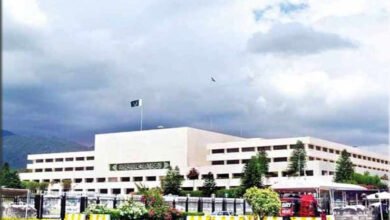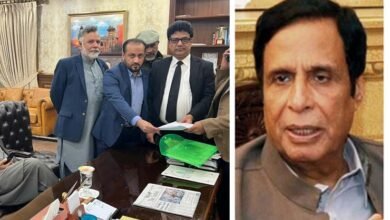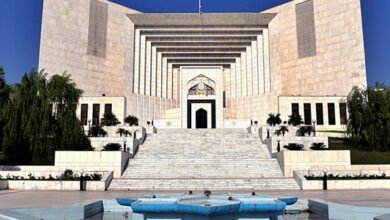SC rules NA speaker authorised to validate votes, forms larger bench on Article 63 (A)
SC gave observations in petitions related to no-confidence motion and Article 63 (A) and endorsed that speaker is authorised to decide on votes' validity.

ISLAMABAD: The Supreme Court (SC) has given important observations in the petitions related to the no-confidence motion and Article 63 (A) and endorsed that the National Assembly (NA) speaker is authorised to decide on the validity of the votes.
While hearing the petition related to the political parties’ power shows yesterday, no-confidence motion and presidential reference on the Article 63 (A), the top court’s two-member bench comprising Chief Justice Umar Ata Bandial and Justice Muneeb Akhtar barred the political parties from organising public gatherings at the D-Chowk besides observing that the vote is the right of the political parties under Article 95 (II) and individual’s vote will found no importance in the parliament.
Following the court orders, the ruling Pakistan Tehreek-e-Insaf (PTI) had decided to hold Islamabad’s public gathering at Parade Ground instead of D-Chowk. It is expected that the opposition parties will also change the venue of their power show.
On the petition of the Supreme Court Bar Association (SCBA), the chief justice remarked that nobody would be allowed to stop the lawmakers from entering the assembly via bringing a crowd. He added that the matter solely belongs to the parliament and parliamentary affairs should be dealt with inside the Parliament House.
During the hearing, Attorney General of Pakistan (AGP) Khalid Jawed Khan assured the SC that the lawmakers will not be stopped from taking part in the voting process.
Justice Akhtar remarked that under Article 95 (II), which is related to the no-confidence motion against the prime minister, the vote of an individual lawmaker has no importance. He added that the court had also given its observations in such cases earlier which were related to the former prime ministers Benazir Bhutto and Nawaz Sharif.
CJP Justice Bandial remarked that if there is any objection against the speaker, it should be addressed in the Parliament and added that the speaker is also a part of the Constitution. The attorney general has assured that the ruling party will hold a peaceful public gathering.
The court said that they should try not to hold a meeting at D-Chowk, sit together and build consensus, it would not be allowed people to be brought in and prevented from casting any vote.
The attorney general told the court that the public would not be allowed to enter the Red Zone on the occasion of the NA session. Orders have been issued to the police and concerned agencies in this regard.
Regarding the presidential reference for the interpretation of Article 63 (A), the top court formed a larger bench and fixed the hearing on March 24.
Legal experts said that the court observations were important in the current political scenario. They added that the court could not give any ruling on the powers of the NA speaker. Moreover, the top court did not give any remarks against the timing of the NA session and voting process.



